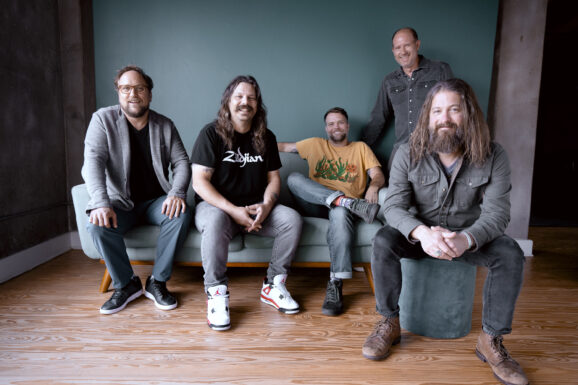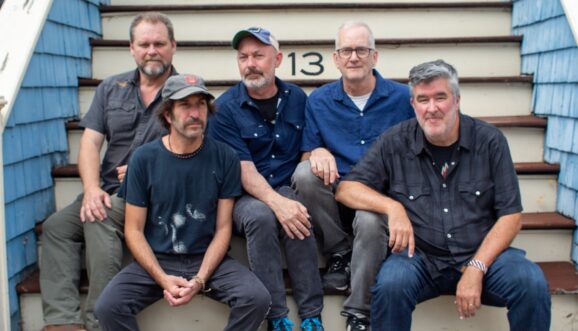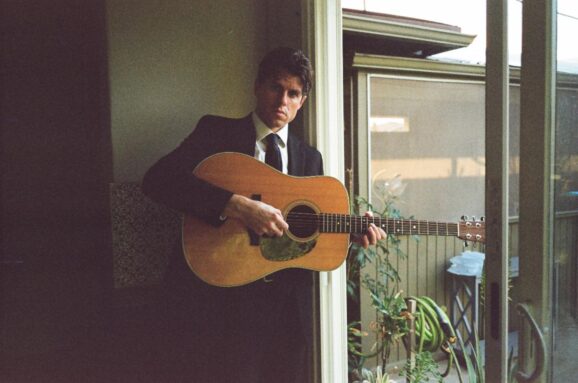Over the past two-plus decades, singer-songwriter Rod Picott has consistently delivered insightful and often searing work across fifteen albums, three published books, and countless shows. He’s back with Starlight Tour, like his last few albums, rendered by a small band and helmed by Neilson Hubbard, his go-to producer. Some may interpret the title as a sarcastic swipe at a farewell tour, but instead, in typically dark Picott fashion, it regards something altogether different (more on this later).
The opening “Next Man in Line” is the linchpin track as Picott reflects on his dad’s weakening in old age, and his own role as the next up in carrying on the family legacy. There’s both the theme of existentialism and an inevitable echo of Dylan as there often is in Picott’s songs with his “How does it feel to be the next (or in the last verse ‘last’) man in line” taking us to Dylan’s chorus in “Rolling Stone.” The blue-collar ethic that imbues so many of his songs is at the heart of the stomping “Digging Ditches,” a metaphor that applies to his work as a troubadour too. The quietly dark “Television Preacher” has a couple of different levels. Sure, like many of us, Picott hates the hypocrisy of these hucksters but in this case, even though he wasn’t exposed to such in his own growing up, many of his friends were. He pities them for being suckered in, but the theme of song runs much deeper. It’s another view of mortality and the fact that while we may know what’s here, the other side will forever be a mystery. In “A Puncher’s Chance.” Picott uses the analogy of the underdog boxer to frame the narrator’s longing for a personal relationship as he knows that both hope and strength can be fleeting.
In this writer’s review of Paper Hearts and Broken Arrows, mention was made of Picott’s oft-distinct lack of hooks and melodies in favor of authentic narratives with spare accompaniment and weird flashes of melody in the choruses. Such is “Combine.” Like “A Puncher’s Chance,” he penned it collaborating with screenwriter Brian Koppelman. It’s a brilliant tale about one saddled with broken farm equipment due to excessive gambling, citing the recently retired (though he didn’t know it at the time) Alabama football coach Nick Saban, and righting the ship if he can just make it to one more decent harvest. The generally upbeat pulse to “The Homecoming Queen” disguises the sad tale of the subject’s succumbing to the proverbial sex, drugs, and rock n’ roll in a co-write with Amy Speace.
So, that title track – “Starlight Tour” was a skeletal concept from singer-songwriter Nick Nace (who can be found on these pages). It’s the name given to the practice of the Saskatoon Police for driving drunk indigenous peoples out to the edge of town and leaving them there to suffer and eventually die of hypothermia during the winter months. The story is told in both first and third person narratives sung in a haunting, whispering style as if crying his way through it – “It’s a dirty needle it’s a broken glass/Don’t make no difference can’t change the past/The future’s a ghost that’s for goddamned sure/Another man gone on the starlight tour.”
Picott thankfully turns rocker in “Wasteland,” almost as a raised index finger to citified folks, it becomes an anthem for off-the-grid types with the synching line – “If you think you’re better with your city lights – you best stay there ‘cause out here it’s dark at night.” While that character revels in it, the narrator, a widower, and Vietnam vet, in “Pelican Bay’ is clearly reduced to monotonous, brutally sad existence. Yet Picott grows sadder in the closing “It’s Time to Let Go of Your Dreams,” accompanying himself only on acoustic guitar essaying his current state – the guilt of not doing all he can for his aging dad, coming to grips with his bouts with depression, and turning his talents to writing longer forms than just songs.
Picott isn’t about making you smile; he’s about making you think. Be grateful. It could be some time before we hear his songs again.








